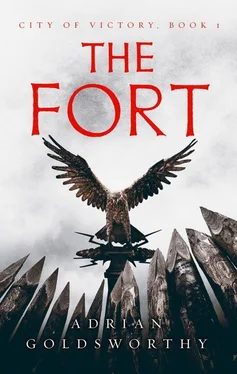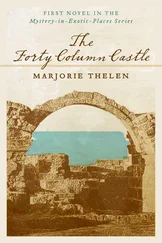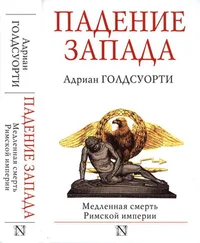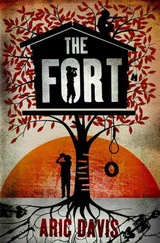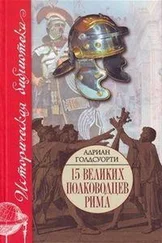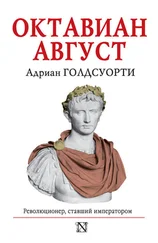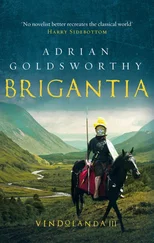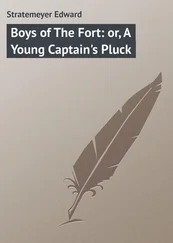Apart from the massacre at the hospital, the garrison had lost fourteen dead, and three or four more who would most likely soon join them, and thirty-nine wounded more or less seriously.
Sabinus had been pleased with the numbers. ‘We killed fifteen or more of theirs for every one of ours – more than four if you count our wounded as well, and most of them aren’t too bad.’
The centurion’s calculations were loose to say the least, and did not allow for the other damage. A small number of Dacians had brought torches and little barrels of pitch, and had set light to a granary and two more buildings before they were caught and killed. Ferox was thankful there had been so few of them and that they had not had enough fuel to get the blazes burning more quickly. As soon as the attack was repulsed and even before he was back on his feet, Dionysius had set men to fighting the fires. They saved half the granary and its contents, helped by the new way of storage Ephippus had suggested to them after the last fire. This meant that there were wide lanes left at regular intervals between the stores and a wall of mud bricks half way down the floor, broken only by a doorway. The other buildings, a barrack block and a storeroom, had been gutted, the latter taking the bulk of their straw for feed and bedding with it.
Yet everything could have been so much worse, and the fears that thought brought to his mind helped Ferox to drive himself and the men to work. The mist had cleared, which was a comfort and although they saw a few Dacians watching from a mile or so away on the far bank, none came any closer and that left the Romans to labour with only a small number of pickets to keep an eye on the enemy.
Ephippus was supervising gangs of men tearing down the buildings of the canabae, taking all the material that could be useful. The engineer had an idea that Ferox thought was a good one, and although he was not yet ready to start work on it for a while, he wanted the man to have what he needed ready and waiting. Once they had all the useful timbers and stone they could get, the buildings were to be burned. The only exception was the bath house, which was too far away to be much use to the enemy as cover and because it would have broken the legionaries’ hearts if they had had to set a torch to its roof.
‘Sir!’ A shout interrupted Ferox’s train of thought.
‘I see them,’ he said, shading his eyes. His helmet had lost a cheek piece in the fall and was being repaired, so he went bare headed because Philo had insisted that he was unable to find either of his battered old wide-brimmed hats. Ferox suspected that this was deliberate, and that the boy disapproved of what he considered to be undignified headgear.
‘Oh, sweet Diana, no,’ Sabinus gasped as he realised where the others were looking. Higher up the valley an army was advancing. The closest were half a mile away, a vanguard of perhaps a thousand unless they were some of the survivors of the night’s attack. Behind them, another mile or more, was a dark shadow like the ones made by clouds, but there were no clouds on this sunny day.
Ferox glanced around him. It was the sixth hour of the day and by this time they had gathered in all the spent missiles that he could see. The enemy dead still lay scattered everywhere, apart from in the ditches, and from a few dozen already burning on a pyre. He had lost his temper earlier when the man in charge of a work party had suggested tipping them all in and covering them with a bit of earth. As far as had been possible, the lilliae and other spiked obstacles had been cleared and repaired.
‘Start getting the men back inside,’ Ferox told Sabinus. ‘There is no great hurry, but let’s not leave it until the last minute.’ He jogged over to see Ephippus.
‘Have you got all you need?’
‘Pretty much, my lord.’
‘Then finish and put a torch to the lot of them.’ Ephippus seemed shocked, but behind him several of the veterans grinned happily. Soldiers always liked burning and breaking things.
‘Serve ’em right,’ one of them said as he carried a torch over to the fire to light. He covered his mouth with his other arm to block the sweet smell of roasting meat. ‘They always cheated you if they could.’
His comrade lacked sympathy. ‘Nah, you just can’t add up, you daft old sod.’ They lit more torches from the first and walked purposefully over to the inn.
‘I am not used to destroying,’ Ephippus said sadly.
‘You get used to it,’ Ferox told him, ‘and it’s a lot easier than making things.’
An hour later Ferox was once again up on the tower over the porta praetoria. The scars on the parapet seemed a lot smaller than they had during the fight, when the enemy arrows had been coming at them. Someone had spread sand out on the floor to cover the bloodstains, and it crunched under his boots.
The enemy kept on coming. Through the black smoke from the burning houses he could see some five hundred men around the bath house and bridge. No one was coming closer than a long bowshot, after the first to try was spitted by the bolt from a scorpio and the man next to him narrowly missed by a second shot. Another large band had moved over the bridge and now stood or sat in the fields either side of the track leading down the valley. A dozen riders were within half a mile, and he suspected that they were leaders for some way behind were eighty or so cavalry, and behind them a lot of infantry, some marching in more or less neat columns and some straggling like a crowd coming out of an amphitheatre after the games. Beyond were waggons, lots of them, and mules or other pack animals and more soldiers on foot.
‘There’s a lot of them,’ Sabinus said. The arrival of the enemy army had taken much away from his earlier good spirits.
‘About eight or nine thousand, so far,’ Ferox said, ‘near as I can judge, but more coming.’
‘How can you tell? Looks more like twice that to me. Almost too many to count.’
‘A wise old primus pilus once taught me a trick – you count their legs and divide by two.’
‘Ah, a wise man indeed.’
Ferox stared down the valley and still saw nothing moving. The cavalry ought to have been back before now, that is if they were coming on their own. The convoy probably had ox carts and oxen were slow and stupid and could not be rushed. If they had found the supply convoy then it could be another day, which meant that they had not the slightest chance of getting past the Dacian army and must then abandon them or die. That the enemy had bothered to send men across the river to wait made him think that they might have word that someone was on the way, or could just be a commander taking sensible precautions. Most Dacian leaders were not fools, as they had shown time and time again. Ferox had let the men use the bridge unmolested, wanting to keep the monâkon a secret for as long as possible. That’s if the enemy did not already know about it. After all, they’d built the thing in the first place and they seemed to know far more about the fort and its garrison than he would like. Spies inside these walls were likely enough, whether some of the civilians or still disgruntled Brigantes willing to send word to Ivonercus and the other deserters. Ferox wondered whether the man was out there amid that host.
‘Send for me if anything exciting happens,’ Ferox told the sentries. ‘And you, centurion, get some rest. No arguments this time.’ He headed back to the principia where the innkeeper and several others were waiting to receive signed statements that their property had been destroyed on army orders according to military needs. The odds were that the statements would not do them much good. Legal rights for anyone living in the canabae were pretty loose at the best of times, until the garrison had been there for many years and the civilians organised themselves and were granted the communal status of a vicus.
Читать дальше
